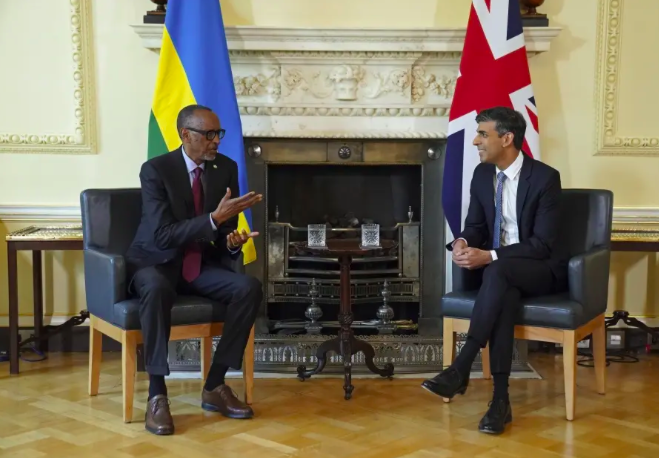In a discussion on the BBC’s Today Program, Deputy Foreign Secretary Andrew Mitchell recently extolled the virtues of Rwanda’s government, referring to it as a “remarkable regime”. This endorsement came as debates surrounding the UK’s “Safety of Rwanda” bill reached a conclusion. However, significant details concerning Rwanda’s human rights record were conspicuously absent from his remarks.
Critics, such as Lewis Mudge, the Director of Central Africa at Human Rights Watch, have openly challenged the narrative presented by UK officials. Mudge’s recent critique, titled “The UK Again Attempts to Bend Truth on Rwanda: Government Official Touts Misinformation,” underscores the tensions surrounding the UK-Rwanda agreement.
The interview neglected to address a distressing incident from 2018, where Rwandan security forces fatally shot 12 Congolese refugees during a protest at the Kiziba refugee camp. The protest erupted over reductions in food rations. Despite Mitchell labeling the incident as “highly contested,” organizations like Human Rights Watch and Amnesty International have documented that excessive force was indeed used. Following the protest, numerous protesters were arrested and subjected to harsh prosecutions, particularly those who had appealed to the UN for help.
The Rwandan National Human Rights Commission’s report on the incident has been criticized as a cover-up, aiming to suppress further dissent and protests within refugee communities. Mitchell’s commentary also conveniently overlooked Rwanda’s support for the M23 armed group, which is implicated in severe human rights abuses and massive displacements in the Democratic Republic of Congo.
Additionally, Mitchell misrepresented the stance of the United Nations High Commissioner for Refugees (UNHCR) on the UK-Rwanda asylum deal. He suggested a comparison with a UNHCR transit mechanism in Rwanda, which is a voluntary arrangement for asylum seekers evacuated from Libya, thereby misleading the audience about the nature of the UK-Rwanda agreement.
The “Safety of Rwanda” bill was pushed through the legislative process last night, despite resistance from the House of Lords who sought to introduce oversight mechanisms. Their concerns were dismissed by government officials as burdensome, reflecting a troubling disregard for thorough scrutiny and transparency.
As the UK government legislates around the Supreme Court’s ruling against Rwanda as a safe country for asylum seekers, the need for an honest and critical examination of Rwanda’s human rights record becomes more pressing. The narrative presented by officials like Mitchell not only oversimplifies complex issues but also potentially misguides public opinion on matters of significant ethical and humanitarian importance.
































































